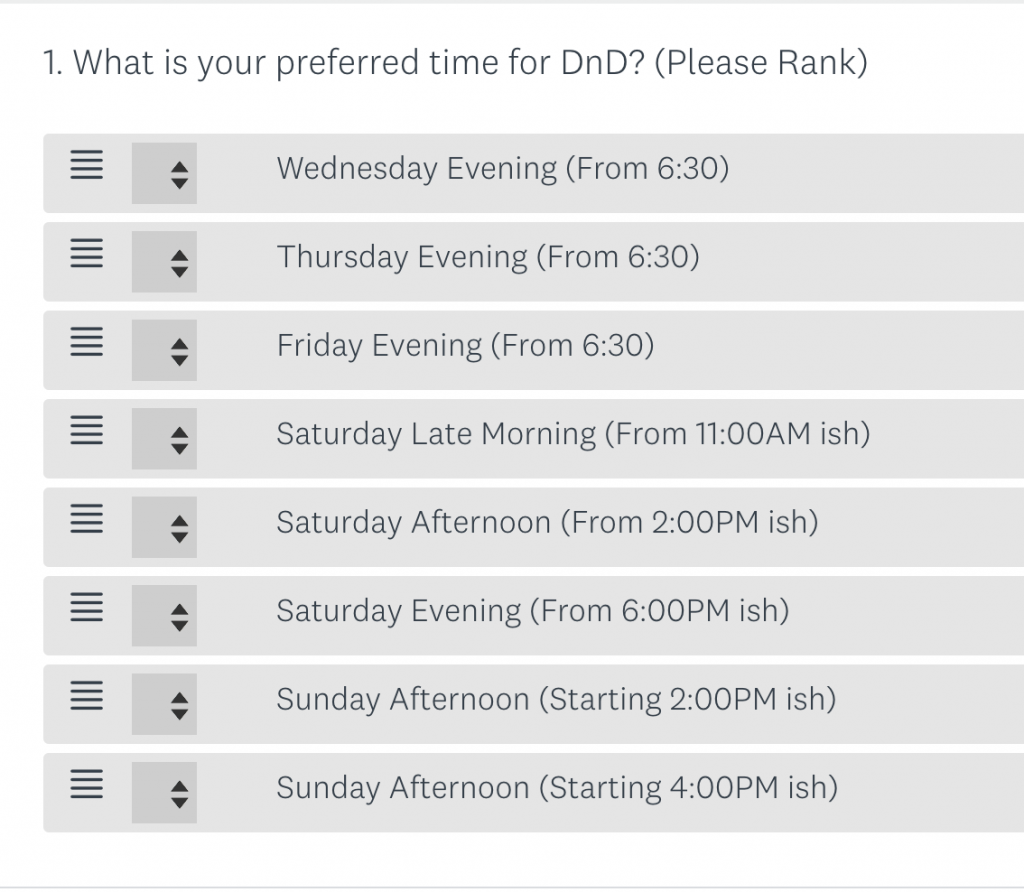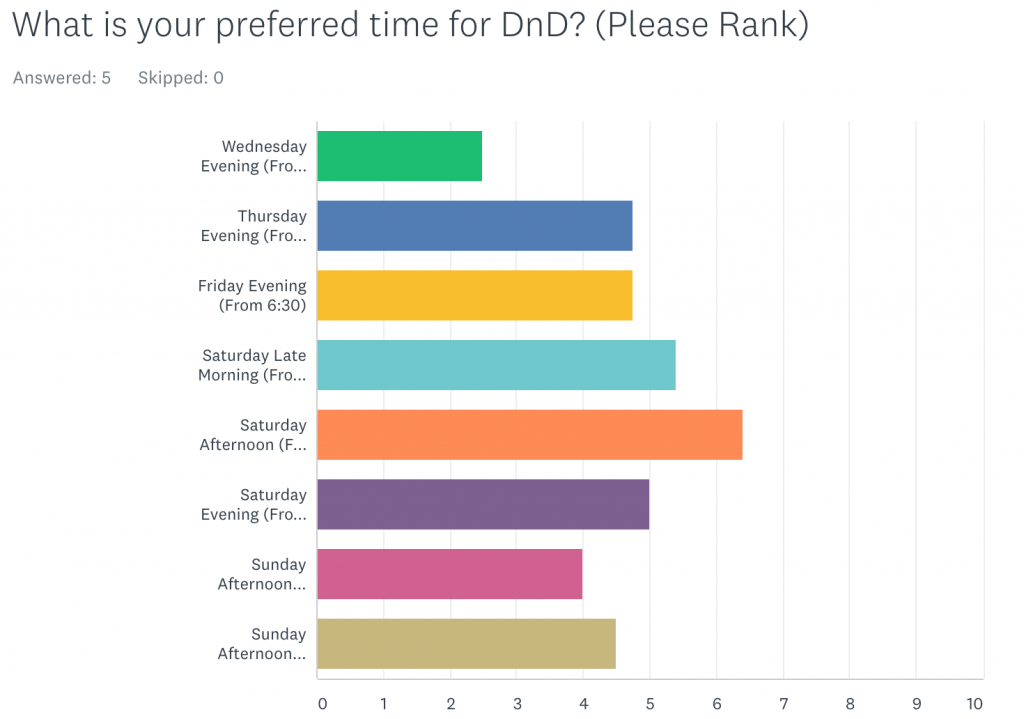As a DM, spending hours preparing a fantastic adventure only to deal with perpetual scheduling conflicts can be incredibly disheartening. Indeed, the number of scheduling D&D memes out there is a testament to how common this problem can be!
I’ve certainly experienced many scheduling woes myself in the past. After a few false starts with several dropouts and cancellations, however, I’ve managed to start two in-person groups which have been meeting regularly for over a year. Rarely do we have unexpected cancellations, and scheduling is no longer an issue.
It turns out that the solution to D&D scheduling problems is actually pretty straightforward: find the right players, set a regular time and cadence, and have recurring calendar invites and confirmations. If you follow these guidelines, your scheduling woes will soon be a thing of the past.
Find The Right Players
One of the main reasons DMs have scheduling problems is not really scheduling related but player related. The reality is that some players may not be as interested in playing DnD as you, and will choose to prioritize other commitments over your game. Also, it’s possible that the kind of game you want to run isn’t a good match for the kind of game your players want to play. Finally, there might be a problem player who ruins the fun for the rest of your group. Any of these factors will increase the likelihood that players will choose to do something else than to play your game.
The solution to the player problem is to meet many potential players and to be picky about who comes to your table. If you only have people at your table who enjoy your DM style, are fun to be around, and are respectful to other players, you’ll have a D&D game that people will continue to come back to. This, of course, is easier said than done and is probably the most difficult aspect of organizing an RPG group. If you feel like you don’t have the right group of players, it may be useful to check out this article on player recruitment.
Set a Regular Time and Cadence
The first D&D group I put together started out as game among friends. I had just finished playing the excellent level 1-5 adventure Lost Mines of Phandelver on Roll20 and was excited to share the experience with my friends. I managed to schedule about 1 or 2 sessions a month, but the amount of effort it took sending out doodle polls and emails to organize the game was exhausting.
One Poll to Rule them All
Eventually, I realized that if I wanted to focus on the game and not on scheduling, I had to find a recurring time to which all players could commit. With a little help from technology, this turned out to be pretty easy. I created a survey on SurveyMonkey and listed the times that were the most convenient for me as a GM. The survey participants then anonymously ranked the times from most convenient to least convenient.

After collecting the results, there was a clear split between Thursday and Saturday, although Saturday turned out to be the best day for the most people. Saturday at 2 was the best time, and Saturday overall was the best day.

Unfortunately, Saturdays weren’t great for one of my friends who ranked Saturdays low on their list. I realized that by doing this survey, most of my friends had similar preferences for recurring times, and it was just one friend who would have been difficult to accommodate. Luckily, I did later start a Thursday group with mostly internet strangers from meetup on Thursday night and was happy to have my friend join.
After running this poll, we’ve never played on day other than Saturday. We set up a recurring cadence of every 3 weeks which later became every 2 weeks. We did occasionally have some scheduling mishaps which lead to canceled games but these problems have mostly been solved through recurring calendar invites and confirmations.
Recurring Calendar Invites and Confirmations
Our group now has recurring Google Calendar invite for the D&D session which I have sent to every player. Nevertheless, I also check with my players right at the end of the session whether the next date still works for everyone. At this point, everyone takes out their phones and confirms the next date. Sometimes a player has a wedding or a business trip that they need to attend and has to sit out the session. If enough people aren’t available for the session, we usually bump it to the following week.
Sometimes people forget too, so I send a text the day before the session as a reminder and we’re good to go.
The Show Must Go On!
When Running D&D it’s inevitable that some people will not be able to make it to a session. As a GM you should be prepared for this inevitability. It’s important not to cancel a session if a player or two can’t make it. If you cancel a game because the full party isn’t present, you’re not going to be playing a lot of D&D.
Know your Minimum Number of Players
I cancel my games when there are fewer than four players. For me, four players is my minimum number of players for a session. Unless I have a very outgoing group, I find that it takes a lot more energy to keep a game going with three. Also, I will have to adjust most of my combat encounters on the fly to make them easier for the players. Finally, I’ve spent a lot of time preparing for the session, so it’s more rewarding for me when at least four players can enjoy the material I’ve prepared.
Because four is my minimum number of players, I usually recruit a total of six players for my games. Although five players is my preferred number, I know that there’s a good chance that at least 1 player will not be able to make it. Even if two players can’t make it, I still have a good number of players to keep going.
And that’s it! If you really want to play a regular game of D&D, seek out folks who want to play it as much as you do, use polling to find out the best time slot, and re-confirm your dates. If you do all of these things, you’ll have no problem gathering your party to venture forth ⚔️